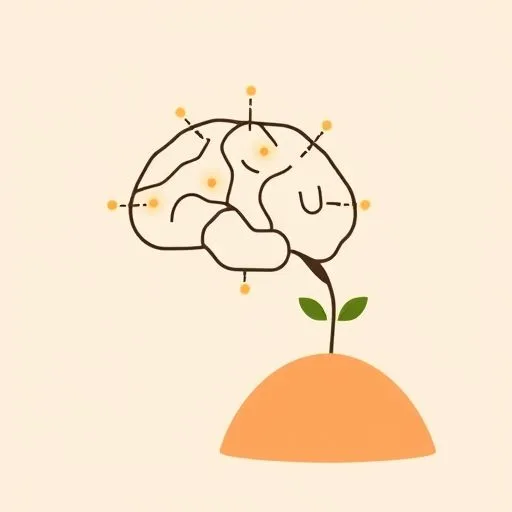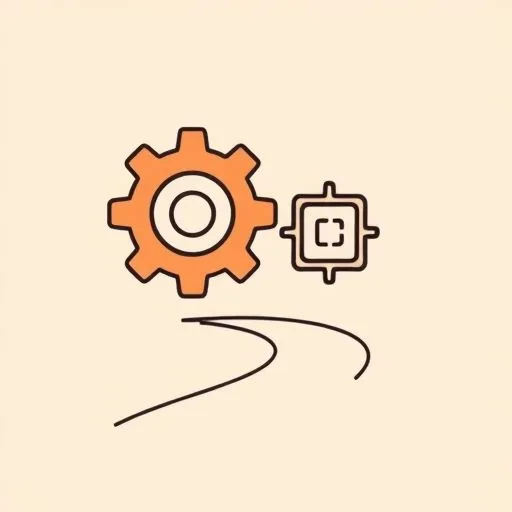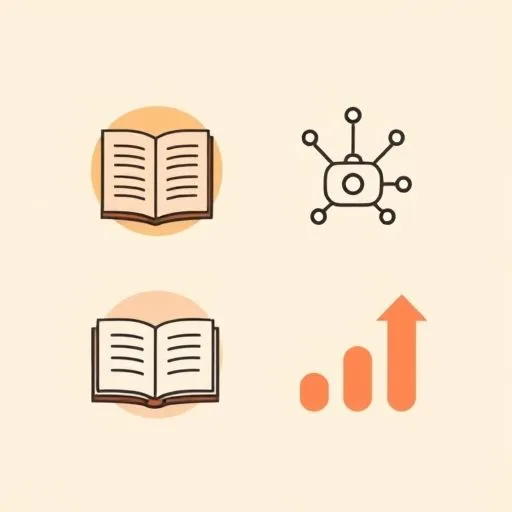
There’s a crispness in the air today as autumn approaches—a perfect time for new beginnings and fresh perspectives. I recently read about Geoffrey Hinton, the pioneering researcher known as the ‘Godfather of AI,’ offering stark predictions about our AI workplace future. ‘It’s going to create massive unemployment and a huge rise in profits. It will make a few people much richer and most people poorer,’ Hinton warned. ‘That’s not AI’s fault, that is the capitalist system.’ Like many of you, reading such statements sends a ripple of concern through me. The thought of intelligent systems transforming—or worse, eliminating—jobs in our AI workplace is undeniably unsettling. But hey, as I mulled it over on our afternoon park stroll, I didn’t feel stuck—I felt like this could be the start of something huge.
On my walk with my daughter—she’s just started grade school and insisted on packing kimchi sandwiches next to her fruit—these ideas came alive in our conversation.
How Will AI Transform Our Workplace?

You know, when I read Hinton’s warning over my morning coffee, it really hit me—he’s right in the thick of this AI revolution, not just watching from afar. He’s one of the foundational minds who helped create the very technology now causing such disruption. His warning isn’t about AI itself being inherently problematic, but about how our economic systems might wield it. ‘What’s actually going to happen is rich people are going to use AI to replace workers,’ he explained. This distinction is crucial—it’s not the algorithms we should fear, but the motivations driving their implementation.
The evidence is already emerging that AI is reshaping entry-level opportunities, with automation increasingly handling once-human tasks. Yet here’s the silver lining we might be overlooking: every major technological revolution in history has eventually created more opportunities than it eliminated. It’s just that the journey between the disruption and the new equilibrium can be challenging for those caught in the transition.
What Makes Humans Valuable in an AI Workplace?

What skills will remain uniquely human in an AI-enhanced workplace? The answer lies not in competing with AI, but in what we can do in concert with it. Remember when we worried that calculators would make mathematicians obsolete? Instead, they freed us to tackle more complex problems. Similarly, AI should be seen as a powerful co-pilot rather than a replacement pilot.
Emotional intelligence, creative problem-solving, ethical reasoning, complex communication—these are the domains where humans will continue to shine. Those professionals who can develop these complementary skills and learn to effectively use AI tools will find themselves not just employable, but increasingly valuable. The most resilient career paths will be those that embrace continuous learning and adaptation, viewing AI literacy as a fundamental professional competency rather than a specialized niche.
How Can We Shape the AI Workplace Future?

Hinton rightly points to the capitalist system as potentially exacerbating inequality in how AI benefits are distributed. But here’s where we find hope: professionals are not passive recipients of these changes. We have the collective power to influence how AI is implemented in our workplaces and how the resulting efficiencies are shared.
This might mean advocating for retraining programs, profit-sharing models that recognize AI contributions, or policies that ensure technological advancements don’t benefit only shareholders at others’ expense. Consider that we’re still in the very early days of this AI workplace revolution. Just as the internet evolved from a tool for academics to a platform that connects billions and has democratized information in unprecedented ways, AI’s trajectory remains unwritten. The determination of whether it becomes a tool of concentration or empowerment will be shaped by our choices today.
Practical Tips for Thriving in an AI Workplace

So what can you actually do right now to ensure you thrive in the evolving AI workplace? First, become a student of technology yourself. Don’t leave AI understanding to tech departments alone—develop your own fluency with these tools. Experiment with them in your current role; you might be surprised by what you can accomplish.
Second, identify and cultivate your uniquely human strengths. The more you understand what you can do better than any algorithm, the more purposefully you can develop those capabilities. Third, build diverse professional networks. Connections across different fields and industries often reveal opportunities and transferable skills that specialized knowledge might obscure.
Fourth, consider how you might use AI to create value that isn’t captured by traditional metrics. This might mean more personalized client experiences, more innovative solutions, or more efficient processes that benefit everyone in your organization. What if you could transform your relationship with AI from fear to partnership?
The Promise of Human-Centered AI Workplaces

As we stand at this technological inflection point in our AI workplace, it’s worth remembering that tools are just instruments—they reflect the values and intentions of their users. AI, for all its sophistication, remains a human creation designed to solve human challenges. The future promise of AI isn’t about machines replacing humans but about handling routine tasks so humans can focus on what matters most—connection, creativity, compassion, and meaning-making.
Imagine what we could achieve when AI handles the busy work—more time for real connections, creative sparks, and those late-night family stories that you can’t code.
Many professionals I speak with are already discovering this firsthand. By delegating repetitive work to AI, they’re finding more time for strategic thinking, deeper client relationships, and innovative problem-solving that couldn’t have happened before. The elimination of certain jobs doesn’t have to mean a net loss of meaningful employment if we reimagine what valuable work actually looks like. The coming decades could give us unprecedented freedom to pursue more fulfilling, more impactful, more human aspects of our professional lives.
Source: The “Godfather of AI”: My creation is going to be used by “the capitalist system” to create massive unemployment. Robots of the world, unite?, Fark, 2025-09-10
